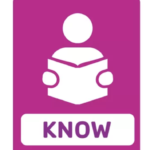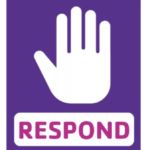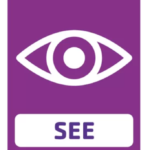Child Abuse Prevention
Child Abuse Prevention
Our Commitment to Child Safety
At the YMCA of Greater Birmingham, we are committed to do everything we can to protect children physically and emotionally. We create spaces where children feel safe and supported; where they can learn, play, make friends, discover who they are and find a place where they belong. This means we all play a roll in educating ourselves and our community about child abuse prevention.
Did you know?
- One in ten children will be sexually abused before their 18th birthday
- 90% of child sexual abuse victims know their abuser
- Approximately 30% of children who are sexually abused are abused by family members
- 60% of child sexual abuse victims never tell anyone
- False reports are rare – Research shows that only 4% to 8% of child sexual abuse reports are fabricated

Praesidium Accreditation® publicly demonstrates to consumers that the YMCA of Greater Birmingham has achieved the highest industry standards in abuse prevention. Praesidium is the leading innovator of scientifically based solutions designed to transform the way organizations approach the prevention of sexual abuse. Praesidium’s expertise, consulting, and solutions help to foster safer environments for children, vulnerable adults, staff, volunteers, and all parties involved. For over 30 years, Praesidium has trained more than one million people online and hundreds of thousands in person. As the largest and most comprehensive sexual abuse risk management firm globally, Praesidium knows how sexual abuse happens and, more importantly, how to prevent it. For more information visit www.PraesidiumInc.com
*Information Provided by Darkness to Light
How We Protect Children
Screening
All new hires and volunteers undergo an interview, three reference checks, a criminal background check, and a sex offender check. All staff and volunteers must also undergo new background checks biannually.
Training
Comprehensive online and in-person child abuse prevention training is mandatory for all YMCA employees and volunteers, who are required to refresh their training annually. The goal is to educate on inappropriate conduct while teaching the warning signs of abuse.
Reporting
Should any allegation arise, the YMCA will proactively work with the authorities and all parties involved to respond in a prompt, thorough, and empathetic manner.
Policy
The YMCA of Greater Birmingham maintains a zero-tolerance policy toward child abuse and child endangerment. Staff and volunteers are to report any questionable behavior they see or violations of their Employee Code of Conduct. Click HERE to view our Abuse Prevention Policies and Procedures for Staff and Volunteers.
Auditing
To ensure we continuously uphold the highest standards in child safety and protection, we have developed internal teams that routinely audit our operations, and utilize the Praesidium assessment tool developed by Praesidium, a consulting firm that specializes in abuse prevention and risk management.
KNOW. SEE. RESPOND.

KNOW how to recognize boundary violations and how offenders operate. It’s up to us as adults to do all we can to prevent child sexual abuse and create safe environments for children. Teaching children about their bodies, recognizing warning signs, and responding to concerns are important first steps. Even very young children can learn skills to help keep themselves safe from sexual abuse, but it’s up to parents to help them learn what they need to know. Here are some important things you can teach that will help you help your child stay safe.
Teach Your Child Rules About Touching Their Body
- Preschoolers understand the idea of rules, such as rules about playing nicely with others and rules about being safe, like wearing seat belts. So, as you teach these rules, add rules about touching their bodies.
- First, talk to your child about body parts, including private parts. This will give your child words to use when he/she needs to tell you anything about his/her body, like an injury, rash, or other problem in that area.
- Then add rules about private parts, like “Never let other people touch your private parts unless Mommy or Daddy knows about it.” Children also need to know what to do when someone breaks the rules about touching.
Teach them:
- What to say to someone who breaks the rules about touching
- To move away from someone who is breaking the rules about touching
- To tell you or another adult if someone breaks the rules about touching
- Phrases so he/she can tell others to stop and practice saying them with your child
- Teach your child to say this to anyone who invades their privacy (other children as well as adults)
- To move away from anyone who is breaking the rules about touching
- Tell your child that it’s ok to get out of someone’s lap or pull away from a hug, even if an adult asks them not to
- To tell you or another adult, like a teacher or caregiver, if someone breaks the rules about touching them.
SEE. Keep your eyes and ears open for signs of abuse, and talk with your child, asking them about your concerns. If something is wrong, you may see a sudden change in your child’s behavior or hear unusual comments. If you see or hear these things, follow up. Find a relaxed time to talk with them.
Child Abuse Warning Signs
- Frequent or unexplained bruises or injury
- Excessive talk about or knowledge of sexual topics
- Unkempt or malnourished appearance
- Bathing frequently; obsessive cleanliness
- Disturbed sleeping or eating patterns
- Inability to stay awake or concentrate for extended periods
- Abrupt changes in behavior, anxiety, clinging, aggressiveness or withdrawal
- Sudden, dramatic changes in activities or personality
- Sexually transmitted diseases and infections
- Fear of a particular person (this can include other minors) or place
- Discomfort with physical contact
- Keeping secrets / Not talking as much as usual
- Not wanting to be left alone with certain people or being afraid to be away from primary caregivers, especially if this is a new behavior.
- Fearfulness or depression
- Aggression toward adults or other children
- Regressive behaviors or resuming behaviors they had grown out of, such as thumb-sucking or bedwetting
- Overly compliant behavior
- Self-harming behaviors
- Loss or decrease in interest in school, activities, and friends
- Sexual behavior that is inappropriate for the child’s age
- Spending an unusual amount of time alone
- Change in eating habits
- Nightmares or fear of being alone at night
- Trying to avoid removing clothing to change or bathe
- Abuse of other children
- Nervousness around adults
- Low self-esteem
Watch for these signs in adults that may signify potential abuse. Remember, offenders seek access, privacy, and control.
Emotional Boundary Violations
- Making them feel important, cared about, and understood
- Spending too much time with them
- Choosing favorites
- Giving gifts
- Acting possessive
- Sending excessive or inappropriate text messages
- Pretending to be the child’s friend on social networking sites like Facebook
- Sharing personal information to make the child feel like they have a special relationship
- Promising extra coaching time, a college scholarship, a place on a national team, or even an Olympic Team spot!
Physical Boundary Violations
- Tickling
- Horseplay
- Hugging
- Massaging
- Wrestling
- Going overboard with affection
Behavioral Boundary Violations
Offenders manipulate kids into doing things they wouldn’t otherwise do, such as:
- Sneaking around by saying they will be in one place when actually they are in another
- Keep secrets with the offender
- Look at pornography
- Use drugs or alcohol

RESPOND. If you see warning signs from your child or adult, or you hear about something that sounds like abuse, report it immediately.
If your child tells you about sexual abuse or inappropriate behavior, here’s how to react. Your response plays a big role in how your child understands abuse and how he/she recovers.
- Stay calm.
- Comfort your child.
- Listen carefully.
- Ask for examples.
- Do not threaten or criticize the person your child is accusing.
If what you learn from your child or if what you’ve observed or overheard at practice sounds like abuse, call Child Protective Services at DHR or the police. If what you learn from your child, or if what you’ve observed or overheard at practice, sounds like a boundary violation, suspicious or inappropriate behavior, or a policy violation, then:
- Share your concerns with the employee, supervisor, or the person in charge of your organization. Follow up with your child and the adult you’ve talked to.
- If you cannot do this, you can report to the organization by calling, emailing, or submitting the online form. (See Reporting Suspected Child Abuse or Concerns)
Reporting Suspected Child Abuse or Concerns
You don’t need proof that abuse is occurring to make a report, only reasonable suspicion. Reasonable suspicion means that you have witnessed maltreatment or boundary violations, either in the child and/or adult, or you have received a disclosure from a child about abuse, neglect, or boundary violations towards them. Child sexual abuse reports should be made to the police and/or state child protective services.
MANDATORY REPORTERS
All Y team members are recognized as mandated reporters of suspected child abuse under the State of Alabama laws and are therefore required to report any suspicion of abuse against those who participate in programs at the Y.
HOW TO REPORT A CONCERN
If you need to report a situation involving child abuse:
- For reports of immediate danger, please call 911.
- To report known or suspected abuse or neglect of a child or vulnerable adult, please call your county’s DHR office. The county numbers can be found HERE.
If you have any questions or concerns about Y staff or volunteers, or another program participant, you can:
- Report concerns to a YMCA Director.
- Call the Praesidium Helpline dedicated to YMCAs at 1-855-347-0751. Praesidium’s Y Helpline allows employees, volunteers, parents, and participants to report suspicious or inappropriate behaviors and policy violations anonymously if desired.
- Complete our online reporting form. Your submission is confidential.
QUESTIONS/CONCERNS
If you have any questions or concerns, please speak to the Executive Director at your branch or email us at childcare@ymcabham.org.
How to Talk to a Child About Abuse
Teaching children about sexual abuse is the best way to help keep them safe. Talking with your child regularly about their activities, people in their life, and how they are feeling helps lay the groundwork for open, non-threatening conversations to be your norm. Learn more about talking to your child about abuse at https://ourkidscenter.com/learn/how-to-talk-about-abuse/
Child and Parent Resources
Together, we can help prevent child sexual abuse. Take a look at some of these helpful resources from other organizations who share the Y’s commitment to the safety of children.
Educational Videos and Information for Parents & Caregivers by Praesidium
Abuse Prevention Introduction
Recognize Abuse and it’s Warning Signs
How to Talk to Youth About Abuse
How to Respond to Child Abuse
6 Key Questions a Parent Should Ask of a Camp
Advice for Parents with Young Children
Other Resources
5 Steps to Protecting Children
Body Safety and Boundaries
Tips for Safe Sleepovers
Keeps Kids Safe and Busy
Who is a Trusted Adult?
Being the Trusted Adult
Internet Safety
Family Code of Conduct
Online Training for Parents & Caregivers by U.S. Center for SafeSport
The U.S. Center for SafeSport produces online abuse awareness and prevention courses. Click here to access all online training materials. After following the link, click the “Get Trained Now” button. This will take you to the Learning Management System, where you can create a free account and access the training.
Child Sexual Abuse Prevention Online Training by Darkness to Light
Darkness to Light offers training that specializes in the education and prevention of child sexual abuse, other forms of abuse, and mandated reporting. Click here to access all online training materials.
- © 2026 Birmingham YMCA - All Rights Reserved
- Privacy Policy
- Terms of Services
- Website by Cayenne Creative





